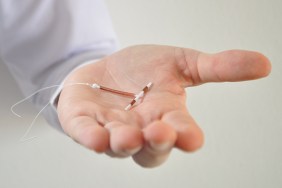She didn’t have them the first time around, so my friend Kate was shocked to develop vulvar varicosities (or vaginal varicose veins) during her second pregnancy. “They felt large and puffy, like a bee sting,” she says. “Sometimes it was hard to sit down.” Kate turned to natural remedies to find relief. “Tight underwear usually felt better than loose panties,” she shares. “I tried sitz baths and teas to bring the swelling down, but nothing really helped.” Luckily for Kate, the bulging veins shrank immediately after giving birth. But here’s the thing: Although vulvar varicosities tend to happen during pregnancy, any woman can get the condition, says Anna Barbieri MD, an ob-gyn and professor at Mount Sinai Hospital in New York City. The good news, however, is that while they can be gross, frustrating, and even a little taboo, vaginal varicose veins are very rarely harmful. We talked to the pros to find out more about vulvar varicosities, including the symptoms, how to manage discomfort, and treatment options.
What are vaginal varicose veins?
Even if you don’t have varicose veins, you’ve probably seen them on someone else’s legs or ankles; they’re the puffy veins that bulge under the skin’s surface, usually in the lower extremities. This type of vein can develop on the vulva or at the vaginal entrance, too, explains Melissa Goist, MD, an ob-gyn at The Ohio State University Wexner Medical Center in Columbus, Ohio.
What do vaginal varicose veins look like?
They’re most commonly described as twisted, bulbous, swollen, bluish, and/or purplish. Emily Fligg, CRNP at OB-GYN Associates in Madison, Alabama, adds that the shape may be circular, curly, or like a tiny tube or bubble and usually doesn’t change in size. They can appear individually or in clumps, similar to tree roots.
What causes vaginal varicose veins?
They can happen to any woman, says Dr. Barbieri, particularly those who are genetically predisposed to get varicose veins. However, the risk of developing them is greatest during the third trimester of pregnancy, because of all the pressure a developing baby (and expanding uterus) puts on the veins in the pelvis and vagina, she adds.
What are the symptoms?
Some women don’t experience any symptoms at all. Those who do may notice one or more of these things:
- Pain in the vulva area
- Feelings of fullness or pressure
- Swelling and discomfort
Are vaginal varicose veins treatable?
According to Fligg, there are several steps you can take to prevent this condition from worsening (and you may even improve it):
- Wear a compression support garment (you can find one online)
- Avoid standing for long periods of time, which puts added pressure on your pelvis
- Elevate your hips, which promotes circulation (try wedging a pillow under your hips)
- Avoid lifting heavy objects, which might agitate the vein
Do pregnant women with vaginal varicose veins have to have a C-Section?
No.”They may cause discomfort, but because the veins are highly compressible and soft they do not inhibit a vaginal delivery,” says Dr. Goist. Furthermore, the veins tend to have low blood flow, so even if excessive bleeding did occur during delivery it could easily be controlled, reports The Mayo Clinic.
Are vaginal varicose veins permanent?
If you developed these veins during your pregnancy, they’ll probably become less swollen after you have your baby — but they never go away, says Dr. Goist. They may come back with subsequent pregnancies or as you age. If they become problematic, and you’re not (or you’re no longer) pregnant, there is a very effective treatment for vaginal varicose veins called sclerotherapy, which involves a fine-needle injection into the vein, she adds.
The truth is, vaginal varicose veins suck. In fact, my friend Kate swore she’d never have another kid because of them. But they are treatable, and they don’t always cause discomfort. However, if you are in pain, try these doctor-recommended treatments, and with any luck your veins will shrink down and you can go back to focusing on all the fun stuff there is to think about when you’re pregnant, like baby names and nursery themes.
More for Pregnant Moms:
- 9 Disgusting Pregnancy Symptoms That Came As a Total Shock
- Pregnancy Health: What Is Linea Nigra?
- 6 Crucial Questions Every Pregnant Woman Should Ask Her OB-GYN








